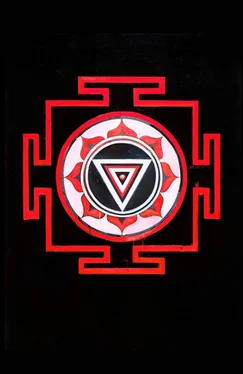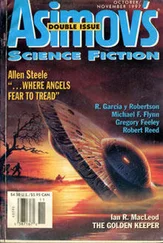‘My people.’
‘That’s right.’
It was pretty funny, in its own way. I stood up, holding the sword in my left hand. He stood with me.
‘Tell Karla everything,’ I said. ‘Anything you’ve hidden from her about this, tell her. Let her make up her own mind about staying or leaving.’
‘I’ll… yes, of course. And about our arrangement? For Karla?’
‘We don’t have an arrangement. There’s no our . There’s no you and me, remember?’
He smiled, opened his mouth to speak, but then pulled me into a hug with surprising passion.
‘I know I can count on you to do the right thing,’ he said. ‘No matter what happens.’
My face was close to his neck. There was a powerful perfume: a woman’s perfume, that had settled on his shirt not long before. It was a cheap perfume. It wasn’t Karla’s perfume.
He’d been with a woman in a suite at the hotel, minutes before he asked me to watch over his wife, the woman I still loved.
And there it was: the truth, suspended on a thread of suspicion between our eyes as I shoved him from the hug. I still loved Karla. I still loved her. It had taken that, a different woman’s scent on Ranjit’s skin, to make me face a truth that had circled my life for two years, like a wolf circling a campfire.
I stared at Ranjit. I was thinking murder, and feeling shamed love for Lisa in equal measure: not a peaceful combination. He shifted his feet awkwardly, trying to read my eyes.
‘Well… okay,’ he said, taking a step away from me. ‘I’ll… I’ll get going.’
I watched as he walked to the doors of the hotel. When he climbed into the back seat of his Mercedes sedan, I saw him glance around nervously, a man who made enemies too easily, and too often.
I looked back to see Lisa, sitting at the table near the window, and reaching out to shake hands with a young man who’d stopped to say hello.
I knew she didn’t like him. She’d once described him as more slippery than a squid in the pocket of a plastic raincoat on a rainy night. He was the son of a successful diamond trader, and he was buying an upper berth in the movie industry, shredding careers along the way.
He was kissing her hand. She withdrew her hand quickly, but the smile she gave him was radiant.
She once told me that every woman has four smiles.
‘Only four?’
‘The First Smile,’ she’d said, ignoring me, ‘is the unconscious one that happens without thinking about it, like smiling at a kid in the street, or smiling back at someone who’s smiling at us from a TV screen.’
‘I don’t smile at the TV.’
‘Everybody smiles at the TV. That’s why we have them.’
‘I don’t smile at the TV.’
‘The Second Smile,’ she’d persisted, ‘is the polite one, the kind we use to invite friends into a house when they come to the door, or to greet them in a restaurant.’
‘Are they paying?’ I’d asked.
‘You wanna hear this, or not?’
‘If I say not , will you stop?’
‘The Third Smile is the one we use against other people.’
‘Smiling against people, huh?’
‘Sure. It’s a good one. With some girls, the best smile they’ve got is the one they use to keep people away.’
‘I’m gonna let that pass, and skip to the fourth.’
‘Aaah! The Fourth Smile is the one we only give to the one we love. It’s the one that says You’re the one . Nobody else ever gets that smile. No matter how happy you are with someone, and no matter how much you like someone, even if you like them so much that you love them really, really a lot, nobody ever gets the Fourth Smile except the one you’re truly in love with.’
‘What happens if you break up?’
‘The Fourth Smile goes with the girl,’ she’d said to me that day. ‘The Fourth Smile always goes with the girl. For ex-boyfriends it’s the Second Smile from then on, unless he’s a bad ex-boyfriend. Bad ex-boyfriends only ever get a Third Smile, no matter how charming they are.’
I watched Lisa give the young producer manqué her best Third Smile, and walked to the men’s room to wash off the new dirt I’d accumulated talking to Ranjit.
The black and cream tiled restroom was larger, more elegantly lit, better appointed, and more comfortable than eighty per cent of the homes in the city. I rolled up the sleeves of my shirt, ran some water over my short hair, and washed my face, hands and forearms.
The attendant handed me a fresh towel. He smiled at me, wagging his head in greeting.
One of the great mysteries of India, and the greatest of all its joys, is the tender warmth of the lowest paid. The man wasn’t angling for a tip: most of the men who used the washroom didn’t give one. He was simply a kind man, in a place of essential requirement, giving me a genuinely kind smile, one human being to another.
It’s that kindness, from the deepest well of the Indian heart, that’s the true flag of the nation, and the connection that brings you back to India again and again, or holds you there forever.
I reached into my pocket to give him a tip, and the silver envelope containing Khaderbhai’s letter came out in my hand with the money. Handing the man his tip, I put the envelope down on the wide counter beside the basin, and then supported myself with both arms, staring into my own eyes in the mirror.
I didn’t want to read the letter: I didn’t want to roll that stone away from the cave where I’d hidden so much of the past. But Tariq said that the letter mentioned Sri Lanka. I had to read it. Locking myself in a stall, I stood the sword against a corner of the door and sat down on the hard seat-cover to read Khaderbhai’s letter.
I held in my hand this day a small blue glass ball, of the kind that they call a marble in English, and I thought about Sri Lanka, and those who will journey to there in my name, as you have promised that you will do for me. For a long time I stared at that blue glass ball in the palm of my hand after I found it on the ground and picked it up. In such fragile things and subtle ways is the pattern of our lives revealed to us. We are collections of things that we find and experience and value and keep inside ourselves, sometimes knowingly, sometimes unknowingly, and that collection of things is what we finally become.
I collected you, Shantaram. You are one of the ornaments of my life. You are my dear son, like all my dear sons.
My hands began to shake: maybe angry, maybe sad, I couldn’t tell. I hadn’t let myself mourn him. I didn’t visit the gravestone monument, in the Marine Lines cemetery. I knew his body wasn’t buried there, because I’d helped to bury him myself.
A fever boiled up through my face, chilling my scalp. My dear son …
You will hate me, I think, when you come to know all of the truth about me. Forgive me, if you can. The night is heavy on me. It may be that all men would be hated if all of the truth were known about them. But with the honesty required of a letter such as this, written on the night before we go to war together, I cannot say that I do not deserve to be hated by some. And to them in this moment I say go to hell, the lot of you.
I was born to leave this legacy. I was born to do it no matter what the cost. Do I use people? Of course I do. Do I manipulate people? As many as I need. Do I kill people? I kill anyone who opposes me violently. And I am protected in this and I endure and I grow stronger, while all around me fall, because I am following my destiny. In my heart I have done no wrong, and my prayers are sincere. I think somehow you understand that.
I have always loved you, even from the first night that we met. Do you remember? When I took you to see the Blind Singers? That is as true as any bad thing you will come to know of me. The bad things are true and I freely admit it. But the good things are just as true even though they are truths of the heart and have no reality outside what we feel and remember. I chose you because I love you and I love you because I chose you. That is the whole of the truth, my son.
Читать дальше












